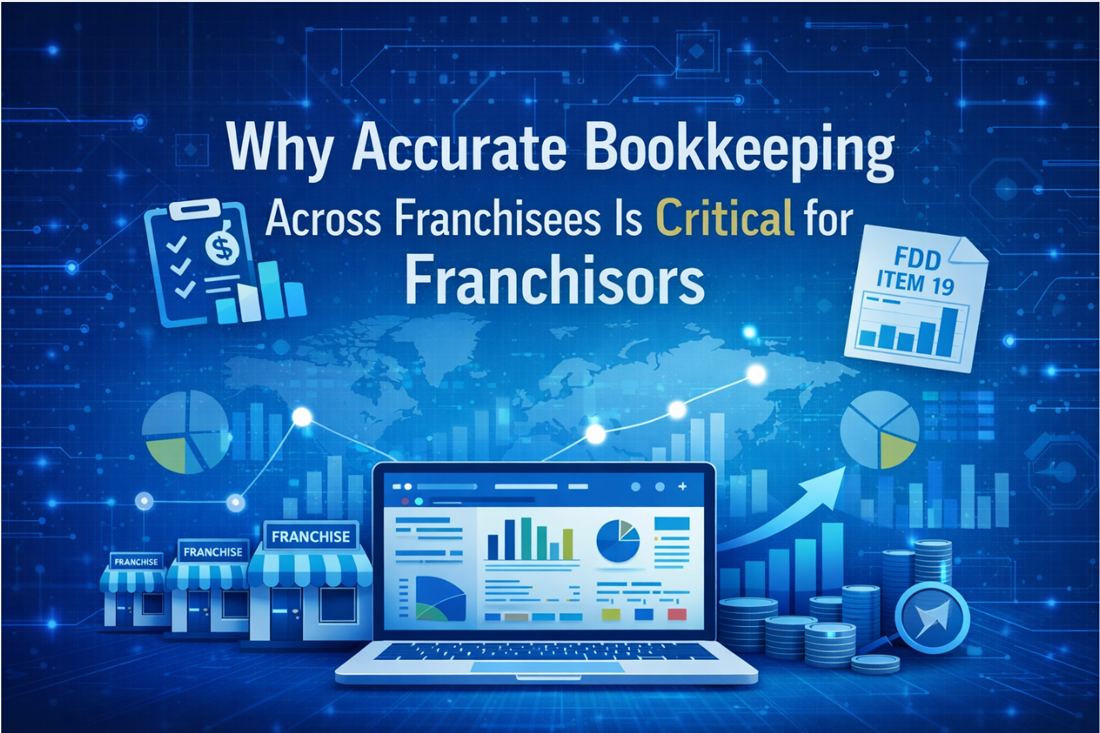It can be overwhelming for small business owners to choose from all the ecommerce bookkeeping services out there. Many small businesses trust xendoo with their financials, but we understand that choosing the best bookkeeping and accounting solution is a big decision.
When running an online store, there are many financial considerations and challenges, including payments, customer returns, shipping logistics, and inventory management.
Whether you use accounting software to do your bookkeeping or work with an ecommerce bookkeeping service, your solution needs to keep up with the many complexities of ecommerce. Alternative sales, inventory management, sales tax, shipping, merchant fees, foreign sales, and multiple currencies are just a few.
This article will look at what bookkeeping features online businesses need and how to choose an ecommerce bookkeeper.
What Is Ecommerce Bookkeeping?
Bookkeeping involves correctly organizing, categorizing, and storing your financial transactions to provide business insights and help with audits and taxes.
Ecommerce bookkeeping is the same but addresses the unique needs of businesses that operate online. Because ecommerce businesses operate online, financial information is recorded digitally and integrated with accounting software. This can provide insight into how you make revenue and spend money.
An ecommerce business has a lot of similarities to operating a conventional retail store but there are differences. Ecommerce accounting needs particular inventory and cash flow management. Small business owners understand that inventory is the base of their business and everything they do relies upon it. Due to this, many financial reports and documents focus mainly on your inventory, but there’s much more.
Top Considerations When Choosing Ecommerce Bookkeeping Services
You don’t want to invest in a bookkeeping solution that does not fit the needs of your ecommerce setup. What are the most important factors to consider when choosing ecommerce bookkeeping services?
1. Types of Ecommerce Platforms
With the ever-changing digital economy, there’s a high chance that you will sell products across multiple platforms at one point in time. The ecommerce platform that you use depends on your unique needs, but some features are non-negotiable.
For example, ecommerce businesses need to be able to track and update inventory in real-time for online customers. It becomes almost impossible to fulfill consumer demand if you cannot track inventory across various sales platforms.
Prioritize an ecommerce platform that can scale with your business. As your business grows, your ecommerce platform will need to provide more advanced features that save you time. A platform with features that allow you to centralize your business operations will significantly impact the stability and profitability of your business.
2. Cost of Merchant Fees
Since most ecommerce stores accept payments through third-party payment processors, there are various fees. For instance, when a customer makes a purchase with a credit card, you could incur merchant fees, also called transaction fees.
Square, Stripe, and PayPal all charge transaction fees on sales. Platforms like Shopify have their own payment gateways that charge a merchant fee. It is the price of doing business.
These fees are taken out for each purchase so they show up as net sales instead of gross sales. Gross revenue is the total amount of sales without deductions. Net revenue includes deductions from expenses.
A bookkeeper may include merchant fees in your expenses. Solutions such as QuickBooks can help you manage and track those fees. For accurate records, identify a system that can track merchant fees while including them in your final statements and reports.
3. Accounting and Finance Features
Every business must have an accounting system. Financial reporting is crucial, and proper accounting systems will ensure your balance sheet is accurate. Otherwise, your business is at risk. The accounting software you choose will depend on what you want the system to deliver.
Each solution comes with a different offering for collecting and tracking data. Here are the essential features that ecommerce businesses need.
Payment Processing
Ecommerce payment processing makes it possible to accept various methods of payment from customers online. Payment processors also provide security and fraud protection features.
More payment options can translate to more customers and revenue. From an accounting perspective though, more payment options come with more sophisticated bookkeeping needs.
As an ecommerce business, you might accept payments through debit cards, credit cards, PayPal, Affirm, Apple Pay, Google Pay, and even cryptocurrency. Accounting software should sync up with your payment processor to record ecommerce sales in real-time.
It helps reduce billing errors by ensuring your account balance is up to date. It also helps save time because integrated systems don’t require manual data entry, making it easy to access your accounting records anywhere.
Returns, Refunds, and Exchanges
The National Retail Federation found that merchandise worth $428 billion bought online got returned in 2020. A clear return refund and exchange policy will encourage online shoppers to purchase. If you have many repeat customers, your return rate will probably be lower than average. The items you sell and your customers will determine your return rate.
However, online businesses have to deal with customer returns and the cost that comes with them. For instance, returns can be expensive with Stripe. If you issue a refund for your customer, the processing fees that you had to pay for the original purchase are non-refundable.
Returns can hurt your bottom line. Your ecommerce bookkeeping system should track the financial costs of returns, refunds, and exchanges.
Inventory Management
Inventory management helps you know what products you have and their location. An inventory management system can help you get orders to customers on time, identify products you should restock, and automatically update your site when a product is out of stock.
Accounting and inventory management systems should work together to help your supply chain run smoothly. Some ecommerce platforms have inventory management features built-in, so they will automatically track inventory for you.
Amazon sellers can use Fulfillment by Amazon (FBA), a service that comes with inventory management and fulfillment. You would send your products to an Amazon warehouse, and they would fulfill the shipment and track inventory. Shopify businesses can use inventory tracking but fulfillment is separate.
If you are like many ecommerce companies, you might sell your products on a combination of platforms, from Etsy, Shopify, and Amazon.
This is where inventory management gets complicated. An ecommerce accountant can advise you on how to set up an accounting system that integrates with your inventory management. This way, you’ll have your inventory in one place.
Shipping Fees
Most small business owners don’t know whether to charge or not to charge shipping fees. According to the Baymard Institute, additional fees can be deal-breakers because most shoppers checkout due to high shipping costs.
Shipping fees are one of the most common ecommerce accounting struggles. The price that customers pay you for shipping may not be the same as the price that freight and delivery services charge you.
When you send products to customers, you pay shipping fees. The shipping fees that customers pay, may be more or less than the actual cost of shipping depending on location, weight, and more.
These shipping fees are not included in the costs of goods sold (COGS). They are recorded as expenses.
On the other hand, the packaging you use to ship your products is considered COGS. An ecommerce bookkeeper can help you navigate COGS and expenses. Plus, track and record your shipping costs accurately.
Foreign Sales and Payments
Many business owners make the common mistake of choosing a bookkeeping solution that doesn’t support foreign sales. This could be a problem if you decide to expand your company globally.
You can reach more customers and create more income potential when you sell in multiple countries. However, foreign sales have specific bookkeeping requirements.
The biggest one is managing conversion rates for foreign currency. When a customer makes a purchase in another currency, you’ll need to reconcile the sales. Currency exchange rates change constantly.
There is a date when someone makes an order and when that payment is processed or settled, so the exchange rate could change during that time. If that’s the case, it should be recorded as a gain or loss. Without an experienced bookkeeper, foreign sales could create discrepancies in your books.
Sales tax
You collect sales taxes with every purchase, but it has to be sent to the government. Sales taxes are not revenue, and your accounting system should automatically deduct those with each purchase. This way you can remit taxes, which means that you’re sending back the money that you owe to the government.
Bookkeeping solutions make it easy to prepare sales tax without doing any guesswork. Good documentation for all deductions is essential to keep what you earn and not what you owe. Real-time tax reporting helps eliminate clutter and time wasted searching for receipts, reducing the stress of tax preparation.
How to Choose an Ecommerce Bookkeeper
Many businesses start looking for an ecommerce bookkeeper once they realize their books are a mess. It is usually a result of previous accountants and bookkeepers not understanding ecommerce accounting well.
Here are a few factors to consider when choosing an ecommerce bookkeeper.
1. Ecommerce Accounting Experience
Money deposited from ecommerce platforms like Shopify or Amazon does not fully represent all financial activity.
An experienced ecommerce bookkeeper should be aware of tools to connect financial data from Shopify, Amazon Seller Central, QuickBooks Online, and more. Plus, they’ll know how to integrate all the platforms that impact your finances and collect accurate financial data in one place.
2. Accounting Software Integrations
Because ecommerce businesses use a wide range of software, they need to be able to pull all your financial data and integrate it into one central location.
Your online accounting software should integrate with the main apps that you use to run your business. Apps that inventory, payroll, sales tax, and more can easily merge with online accounting software.
3. Reliability
Unfortunately, being a certified accountant does not always prove reliability. Before you partner with a specific bookkeeper, do prior research and read reviews. You can read reviews from past xendoo clients here.
You can also schedule a free consultation to talk to a bookkeeper. In a consultation, you can discuss your unique business needs and an accounting solution that fits them.
The Best Ecommerce Bookkeepers
It can be stressful to entrust your business finances to someone outside the company. Using an ecommerce bookkeeping service can free up the time and resources your company needs to grow. If you have been thinking about outsourcing your bookkeeping, now is the right time.
The best bookkeeping services include tax preparation, accounting software management, strategic planning, payroll, and more.
xendoo goes a step further. We pair reliable accounting technology with a dedicated bookkeeper that can handle all your ecommerce accounting needs. Get started today with a free trial or schedule a consultation for your ecommerce bookkeeping.









